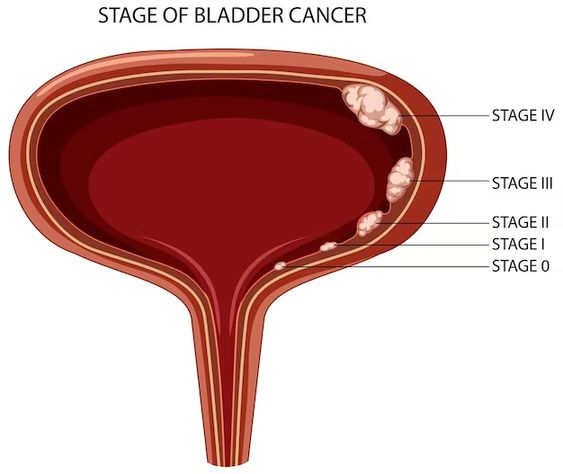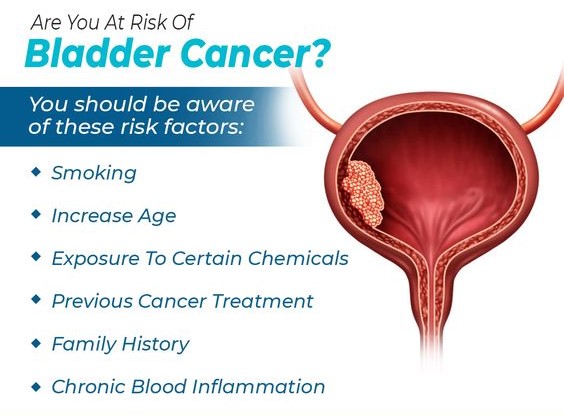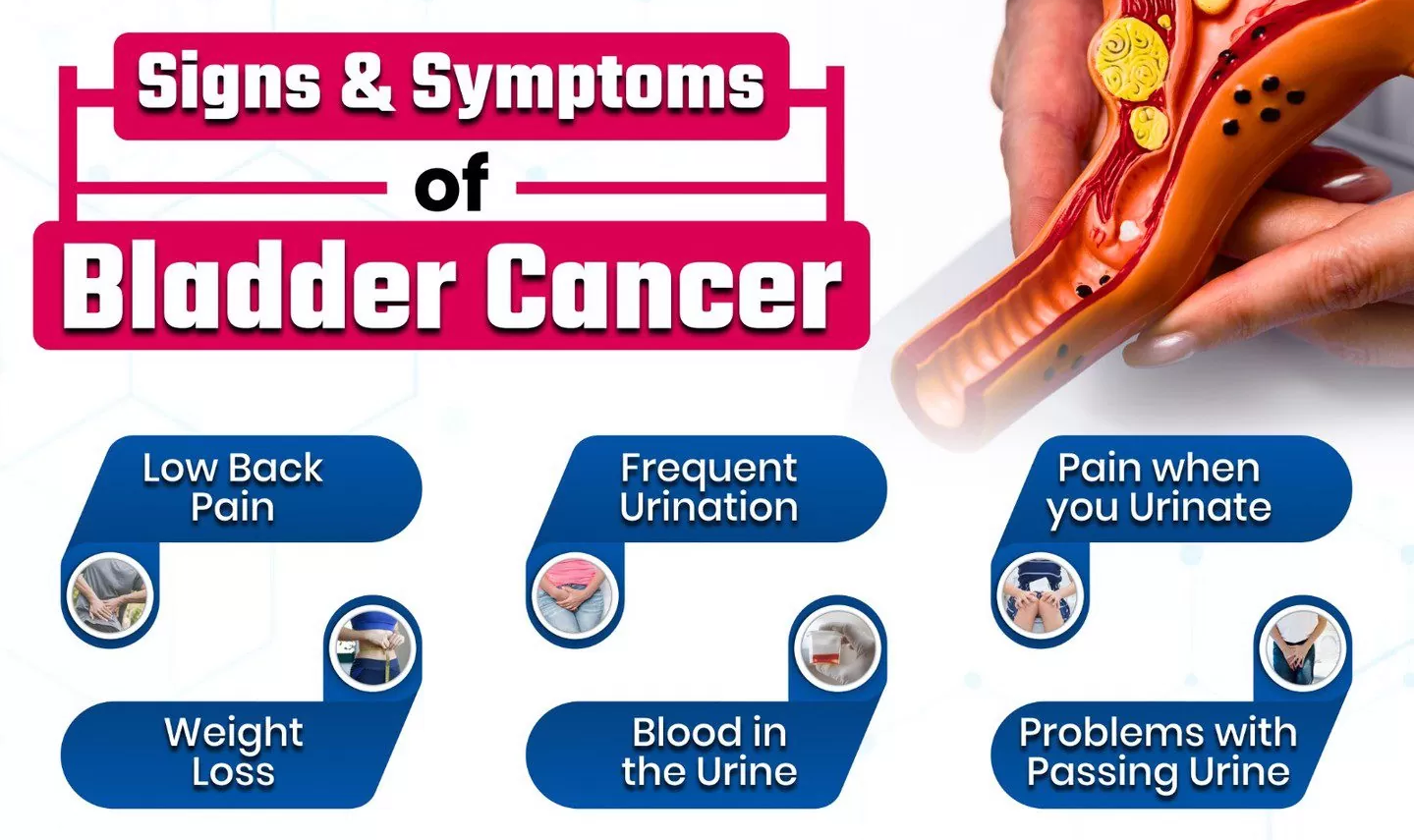Bladder Cancer
At North Houston Cancer Clinics, our expert oncologist and team are waiting to provide you with the most innovative techniques for bladder cancer diagnosis and bladder cancer treatment. Our advanced technology and trained staff will make your bladder cancer treatment journey easy. We aim to provide the best treatment and care to our patients.
What Is Bladder Cancer ?
Bladder Cancer is a common type of cancer that usually can be seen in older people. It begins to grow in the cells and lining of the bladder. The bladder is a hollow, balloon-like organ present in the lower abdominal region of your body. There are many different ways available for bladder cancer treatments, including surgery, which will directly remove the bladder. In some cases, bladder cancer reappears after some time of treatment, so every bladder cancer patient must be aware of the bladder cancer signs and symptoms and must follow a routine medical checkup with their healthcare providers.
The bladder stores urine. Bladder cancer can affect individuals of every age but is most common in older people. It starts to appear in the urothelial cells, which form the internal lining of the bladder. Urothelial cells are also found in other urological sites, including the kidneys, the uterus, and the bladder, which means urothelial cancer can grow in the kidneys and the uterus.
Bladder Cancer Treatments & Diagnostics
Some standard tests and procedures have been used to detect bladder cancer. It depends upon the person’s situation and which type of test is suitable for them. What kind of cancer do you have? What are the common signs and symptoms you are experiencing? What is your health condition? Is there any underlying Situation? Your age and then the results of these tests.
Names Of Diagnostic Tests:
1. Urine Test (Urinalysis)
2. Biopsy
3. Cystoscopy
4. CT Scan
5. Magnetic Resonance Imaging (MRI)


Bladder Cancer Diagnosis Journey
Bladder Cancer diagnosis depends upon a list of tests and scans. Doctors use different test procedures to detect the type of cancer, the size of the tumor, and the extent to which the tumor is growing and spreading. Sometimes, cancer has started to spread around the bladder and to the other organs. This situation is called metastasis. In this condition, the doctor does a biopsy, and a small tissue sample is taken for laboratory testing. The results will assure the doctor that a specific area is being affected by cancer.
Types Of Bladder Cancer
Bladder cancer has three types depending on the cells where the cancer has grown. It includes:
Transitional Cell Carcinoma: About 90% of bladder cancers are transitional cancers, as they grow in the bladder’s transitional cells. This is called Urothelial Bladder Cancer, and it can spread from the inner lining to the deep layers and also affect the surrounding tissues of the bladder.
Squamous Cell Carcinoma: Only 5% of bladder cancers fall into this category. It mainly develops in people with a history of bladder irritations, itching, or infection. Sometimes, in critical situations, transitional cells transform into squamous cells.
Adenocarcinoma: This type of bladder cancer grows in the epithelial cells of the bladder lining, which are responsible for making mucus.


Investigating The Root Causes of Bladder Cancer
Many reasons can cause bladder cancer. It mainly depends upon different factors. The leading cause of bladder cancer is still not known. Following are some commonly associated factors driving bladder cancer.
Smoking Tobacco is a leading cause of bladder cancer as chemicals present in Tobacco are exposed to the bladder when it gets absorbed from the blood.
- Age is also a factor in causing bladder cancer as the chances of bladder cancer increase with age.
- Bladder cancer is more common in men as we have more cases reported for male gender.
- Exposure to different radiation therapies may cause bladder cancer. Some people have undergone cancer treatments, including radiation therapies and chemotherapy. They are at higher risk of bladder cancer.
- If anyone has a family history of bladder cancer, then the chance of developing bladder cancer increases in them.
At North Houston Cancer Clinics, we provide the best bladder cancer treatments and educate you about the factors contributing to bladder cancer development. Proper medical checkups and a maintained diet will help to prevent bladder cancer.
Bladder Cancer Early Signs & Symptoms
Bladder Cancer Diagnosis depends upon the common signs and symptoms a patient experiences. Most of the time, people with bladder cancer don’t show any specific signs or symptoms. Here are some commonly reported signs and symptoms that will help diagnose bladder cancer.
- Blood in the Urine (Hematuria): The most common symptom is Hematuria, which means the person will see blood in his urine. The color of the blood may vary from red to rust. You should contact your doctor whenever you feel any spot of blood in your urine. It may be for other reasons as well.
- Pain During Urination (Dysuria): Some people feel burning sensations and pain. It also causes trouble in passing urine.
- Frequent Urination: If you need to go to the washroom more frequently than usual for urination in 24 hours, you must go for your medical checkup.

